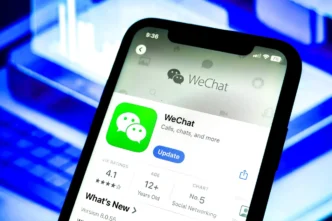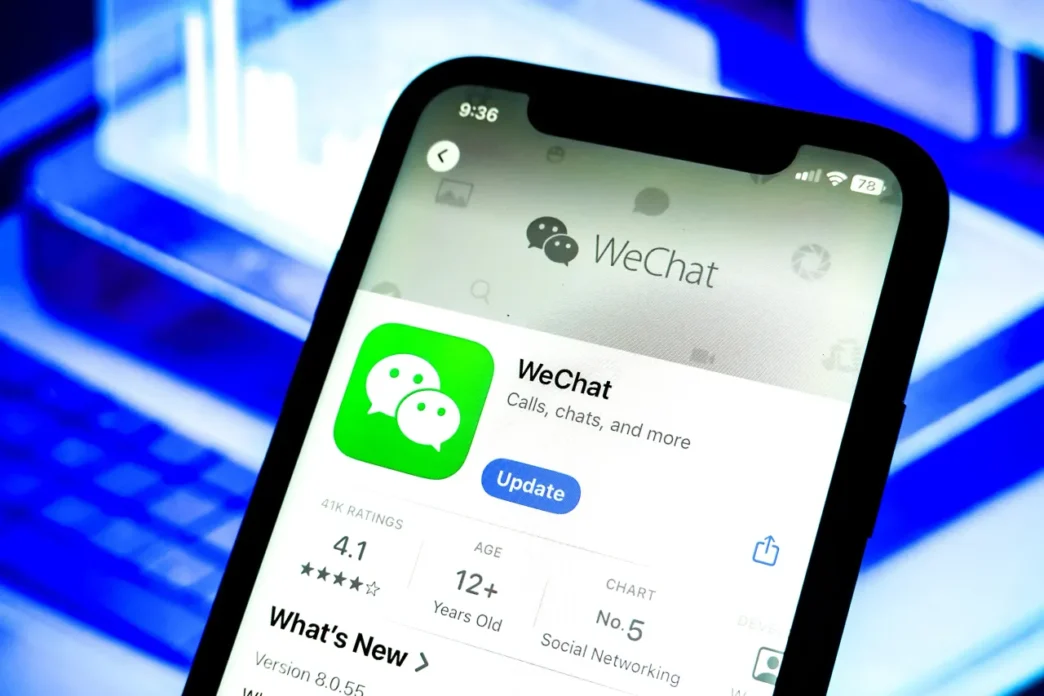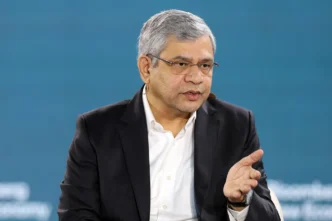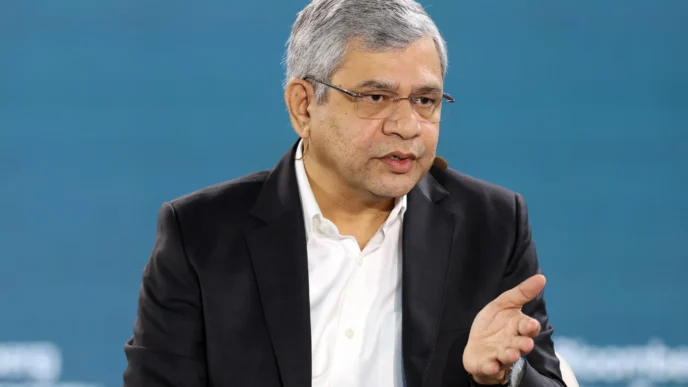In a rare accord between two of the world’s most powerful tech companies, Apple Inc. and Tencent Holdings Ltd. have reached an agreement that will reshape one of China’s most lucrative digital ecosystems. Under the new deal, Apple will take a 15% cut of in-app purchases made through WeChat’s “mini programs,” ending years of tension over how to share the fast-growing stream of mobile app revenue inside China’s dominant social platform.
The agreement marks a significant shift in Apple’s approach to app monetization and underscores the deepening interdependence between U.S. and Chinese tech giants despite growing geopolitical and regulatory frictions.
A New Chapter in Apple–Tencent Relations
For years, Apple and Tencent have been locked in a quiet but consequential battle over how transactions within WeChat, China’s “super app,” should be treated under Apple’s App Store rules.
WeChat’s mini programs — lightweight apps that run inside the WeChat ecosystem without needing a separate download — have become a digital economy unto themselves. They power everything from shopping and banking to ride-hailing, gaming, ticket booking, and government services, generating billions in revenue for Tencent and its partners.
Apple, which typically collects a 30% commission on in-app purchases made through its App Store, had long sought to extend its cut to WeChat’s internal ecosystem. Tencent, for its part, argued that mini programs function more like web services than standalone iOS apps — and therefore shouldn’t be subject to Apple’s traditional fee structure.
The standoff occasionally threatened to upend a relationship vital to both companies. In 2017, Tencent briefly disabled WeChat tips and in-app payments on iPhones after Apple insisted on applying its fees, prompting a backlash from hundreds of millions of users.
Now, after years of negotiation, both sides have reached a compromise that could serve as a template for digital commerce partnerships worldwide.
The Terms: A 15% Compromise
According to people familiar with the agreement, Apple will receive a 15% commission on revenue generated by in-app purchases within WeChat mini programs distributed through the iOS ecosystem.
The rate is half of Apple’s standard 30% cut, aligning it with the reduced rate the company already offers small developers and long-term App Store subscribers.
Tencent, in turn, will retain the ability to process WeChat Pay transactions directly, preserving its central role in China’s mobile payments market — where it competes fiercely with Alipay, operated by Ant Group.
“This agreement recognizes the unique role WeChat plays in China’s digital life,” said a senior industry analyst in Shenzhen. “Apple understands that enforcing Western-style App Store rules on WeChat’s ecosystem would alienate users and hurt its brand in its second-largest market.”
A Strategic Win for Both Sides
For Apple, the deal helps it secure revenue from an ecosystem it cannot directly control — a strategic concession that also protects iPhone sales in China, where WeChat is indispensable to everyday life.
China accounts for roughly 20% of Apple’s global revenue, and WeChat’s 1.3 billion users are a key part of that customer base. Any disruption to WeChat’s functionality on iPhones could have triggered a massive backlash, especially at a time when domestic brands like Huawei are regaining market share.
For Tencent, the agreement eliminates a cloud of uncertainty that has loomed over its mini-app ecosystem for years. The company can now expand its WeChat business model with greater clarity, while maintaining its dominance in mobile services and social commerce.
“Tencent needed stability, and Apple needed access,” said one Beijing-based tech consultant. “Both sides realized that compromise was better than confrontation.”
China’s Super-App Economy at a Crossroads
The deal also highlights the growing influence of super apps — platforms that integrate messaging, payments, e-commerce, and entertainment into a single interface. WeChat pioneered the model, and its mini programs have since become a $400 billion marketplace, according to industry estimates.
Companies from Alibaba to ByteDance have sought to emulate its success, while Western platforms like Meta’s Instagram and Elon Musk’s X have openly discussed transforming their apps into “everything platforms” similar to WeChat.
Apple’s cooperation with Tencent signals a quiet acknowledgment of this shift. Rather than enforcing rigid App Store rules, Apple is showing flexibility in adapting to regional digital ecosystems that operate under different economic and regulatory models.
“Apple can’t simply impose its global standards in China,” said a Hong Kong-based digital commerce expert. “It needs to integrate into the way Chinese consumers already interact with technology.”
Global Implications: A Model for Future Partnerships
The Apple–Tencent deal could have far-reaching implications beyond China. Tech regulators in the U.S. and Europe have scrutinized Apple’s App Store policies for anti-competitive behavior, arguing that the company’s commission structure stifles innovation and harms developers.
A successful 15% framework in China could serve as a blueprint for future revenue-sharing models, especially in emerging markets where local platforms dominate app ecosystems.
Moreover, the deal reflects a broader trend: multinational tech firms are increasingly being forced to adapt to local ecosystems rather than dominate them. In China, where the government maintains strict control over data and digital payments, cooperation with domestic giants like Tencent is not optional — it’s essential.
A Balancing Act in an Era of Tension
The agreement comes amid heightened U.S.–China tech tensions, from semiconductor restrictions to data security crackdowns. Apple has faced growing scrutiny from both sides — balancing its dependence on Chinese manufacturing and consumers with rising pressure from Washington to diversify supply chains.
By deepening its partnership with Tencent, Apple is signaling a pragmatic approach: maintaining access to China’s massive market while navigating political and regulatory sensitivities.
Still, analysts caution that the balance remains delicate. Any future geopolitical shock — from trade disputes to cybersecurity regulations — could quickly test the limits of this newfound cooperation.
Conclusion: A Digital Detente with Global Ripples
The Apple–Tencent revenue-sharing agreement represents a milestone in the evolution of global digital commerce. It is a rare instance of two corporate giants finding common ground across regulatory, cultural, and economic divides.
While Apple retains a foothold in China’s massive app economy, Tencent gains legitimacy and stability within Apple’s global ecosystem — a win-win in an era defined by fragmentation.
Yet beneath the harmony lies a deeper question: can global tech coexist sustainably across competing systems of governance and commerce?
For now, Apple and Tencent’s 15% truce offers an answer — cooperation may be harder than competition, but in a divided digital world, it’s the only way forward.
















